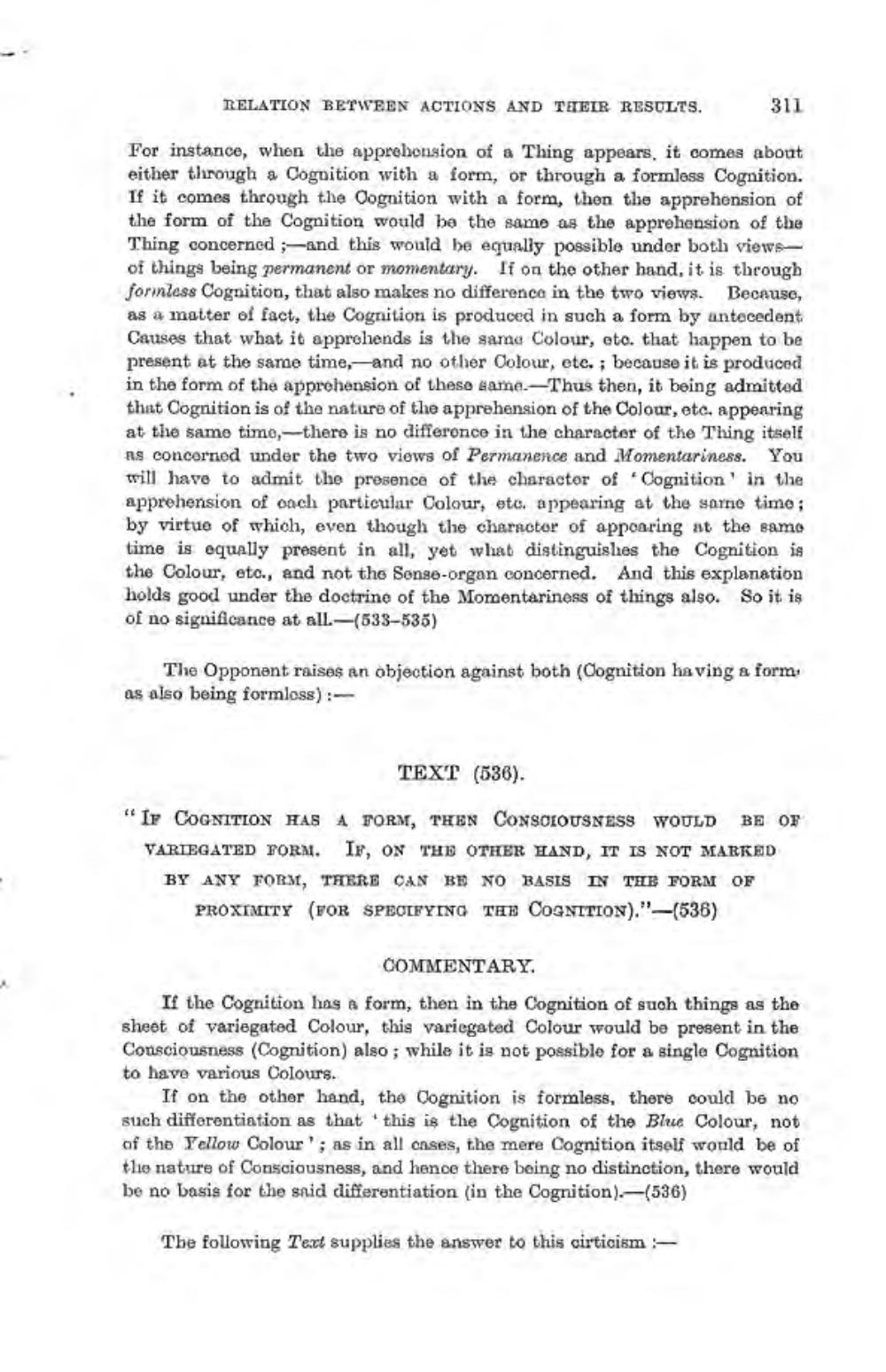________________
RELATION BETWEEN ACTIONS AND TEEIR RESULTS.
311
For instance, when the apprehension of a Thing appears, it comes about either through a Cogoition with form, or through a formless Cognition. If it comes through the Cognition with a form, then the apprehension of the form of the Cognition would be the same as the apprehension of the Thing concerned and this would be equally possible under both viewsof things being permanent or momentary. If on the other hand, it is through fornless Cognition, that also makes no difference in the two views. Because, as a matter of fact, the Cognition is produced in such a form by antecedent Causes that what it apprehends is the same Colour, etc. that happen to be present at the same time, and no other Colour, etc. ; because it is produced in the form of the apprehension of these came.-Thus then, it being admitted that Cognition is of the nature of the apprehension of the Colour, etc. appearing at the same time, there is no difference in the character of the Thing itself As concerned under the two views of Permanence and Momentariness. You will have to admit the presence of the charactor of Cognition' in the apprehension of oach particular Colour, etc. appearing at the same time; by virtue of which, even though the character of appearing at the samo time is equally present in all, yet what distinguislies the Cognition is the Colour, etc., and not the Senge-organ concerned. And this explanation holds good under the doctrine of the Momentariness of things also. So it is of no significance at all.-(533-535)
The Opponent raises an objection against both (Cognition having a form, as also being formloss) :
TEXT (536).
"IT COGNITION HAS A FORM, THEN CONSCIOUSNESS WOULD BE OF VARIEGATED FORM. Ir, ON THE OTHER HAND, IT IS NOT MARKED BY ANY FORM, THERE CAN BE NO BASIS IN THE FORM OF
PROXIMITY (FOR SPECIFYING THE COGNITION)."-(536)
COMMENTARY
If the Cognition has a form, then in the Cognition of such things as the sheet of variegated Colour, this variegated Colour would be present in the Consciousness (Cognition) also ; while it is not possible for a single Cognition to have various Colours.
If on the other hand, the Cognition is formless, there could be no such differentiation as that this is the Cognition of the Blue Colour, not of the Yellow Colour'; as in all cases, the mere Cognition itself would be of the nature of Consciousness, and hence there being no distinction, there would be no basis for the snid differentiation in the Cognition).-(536)
The following Text supplies the answer to this cirticism -




